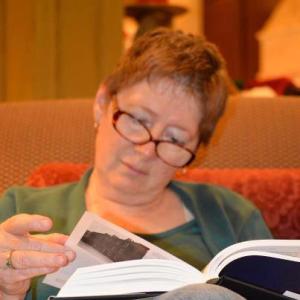by Julia Robb

I’m writing this message to you in the form of a letter because it is very personal to me.
My blog, “The Real Reason Texas Rebelled Against Mexico,” was printed yesterday in the Heart of Texas Blog.
In the last paragraph, I wrote Hispanic Texans fought with Anglo Texans against dictator Santa Anna and his army.
I should have put that paragraph at the beginning of my piece because some Hispanic Texans did not read the entire blog and their feelings were hurt.
They thought I was attacking them, rather than Santa Anna and his government.
I hate that. I don’t like people hurt.
I was also sad some Hispanic Texans and Anglo Texans ended up attacking each other in the comment section on facebook.
I’ll have more to say about that at the end of this blog.
But now, I want to tell you about Hispanics who fought for Texas.
Nine Hispanic Texans died at the Alamo, fighting against Mexican forces: They were Juan Abamillo, Juan A. Badillo, Carlos Espalier, Gregorio Esparza, Antonio Fuentes, José María Guerrero, Damacio Jimenes (Ximenes), Toribio Losoya, and Andrés Nava.
Brave men.
Juan Seguín (for whom the town of Seguín was named) would have died at the Alamo, except he was ordered to carry messages to other parts of Texas.
But Seguín’s real heroics began after the Alamo fell.

In 1835, Seguín joined the Mexican rebels who fought against the dictatorial Mexican government, and when that cause failed, raised a company of men and joined the Texas Army.
Seguín’s company scouted for the revolutionary army and fought in the siege of San Antonio.
Seguín and his men also functioned as Sam Houston’s rear guard and he and his company were the only Hispanic Texas unit to fight at the Battle of San Jacinto.
Later, Seguín was San Antonio’s military commander and it was he who directed burial services for the Alamo dead.
Seguín resigned his commission when he was elected to the Texas Senate.
Unfortunately for Seguín, he had conflicting loyalties and fought against the U.S. during the Mexican War.
But that does not erase what he did for Texas, and he is buried in the town bearing his name.
Finally, here is a shining example of how people should treat each other.
This account was written by Dr. Joseph Barnard, one of the Goliad prisoners. (If you don’t know about Goliad, read yesterday’s blog).
Señora Alavéz, wife (or girlfriend) of Mexican Army Captain Telesforo Alavéz, was at Goliad and saw Mexican soldiers tie prisoners so tightly it stopped their circulation.
Señora Alavéz persuaded the guards to untie the prisoners and made sure they had food and water.
When Señora Alavéz discovered Santa Anna had ordered the Army to shoot the prisoners, she pleaded with one of the Mexican officers to save them.
Therefore, “A few of us, in consequence, were left to tell of that bloody day,” Barnard wrote, adding “during the time of the massacre she stood in the street, her hair floating, speaking wildly, and abusing the Mexican officers, especially Portilla. She appeared almost frantic.”
Señora Alavéz also “saved others by her connivance with some of the officers, who had gone into the fort at night and taken out some whom she had kept concealed until after the massacre,” Bernard wrote.
Señora Alavéz was “The Angel of Goliad.”
True, the Angel of Goliad was not an Hispanic Texan, but that makes her even more admirable.
The angel saved men her country considered enemies; acting from pity and compassion.
Now folks, here’s what else I want to say to you.
Let’s base our behavior on the Angel.
Some of the (Hispanic) readers who responded to yesterday’s blog were hurt and angry and some Anglos responded to the Hispanics with more anger and with harsh words.
That reflects the larger Texas culture.
Many Hispanic Texans feel rejected and misunderstood, and many Anglo Texans are defensive about Texas history.
It’s time to stop all that and accept and support each other, and love each other, and treat each other with compassion.
Texas would not be the same without Hispanics. What would we do without enchiladas and tacos, and the names of our towns; San Antonio, El Paso. Lamesa, Mexia, San Angelo, among many others.
Don’t you love the rivers with beautiful Spanish names: The Rio Grande, the Rio Frio, the Rio de los Brazos de Dios, The River of the Arms of God.
What would Hispanics do without the wide sweep of Texas land, and their history in this land?
We are one people. We will always be one people.
Love each other.
